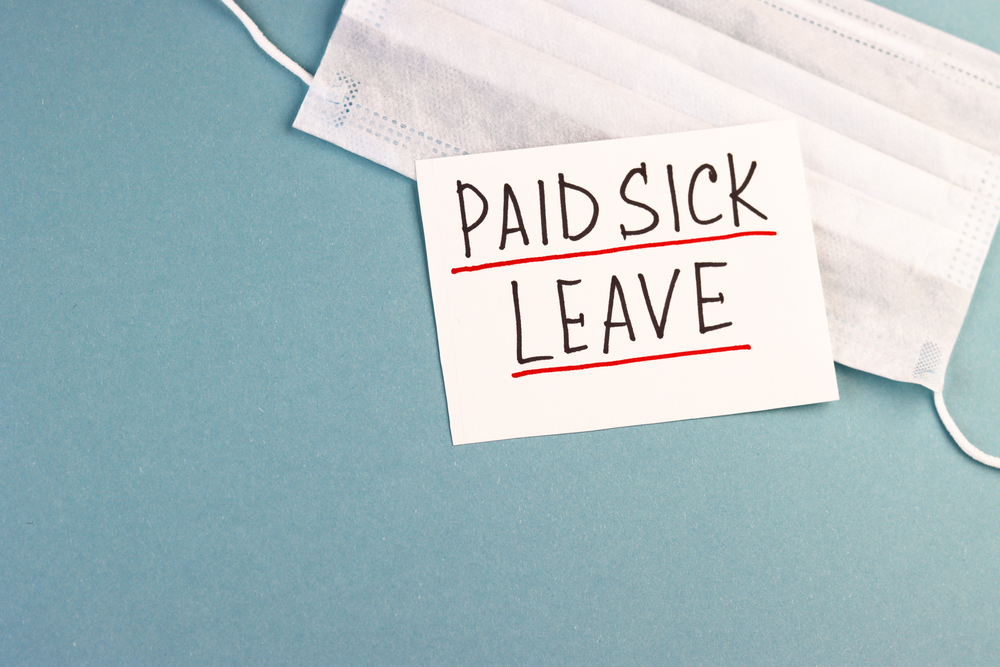
Coronavirus: self-certification period temporarily extended
As of 17 December 2021, there has been a temporary shift to the self-certification period regarding Statutory Sick Pay (SSP).
The change is another measure taken in response to the emergence of Omicron. It aims to provide temporary relief for GPs, to concentrate their energy on delivering the COVID-19 booster programme and emergency care.
What is SSP?
SSP is the pay employees may be eligible for if they are unable to work, due to sickness, for at least four consecutive days (including non-working days). Employers are responsible for paying the weekly SSP rate of £96.35 for up to 28 weeks if the employee qualifies.
What is changing?
Ordinarily, employees can self-certify the reason for their absence for up to seven days, before requiring medical evidence from their GP (also known as a fit note). However, as of 17 December 2021, the self-certification period has been extended to 28 days, meaning employees have longer to acquire a sick note due to the obstacles of the Omicron virus.
This change even includes absences beginning from 10 December 2021.
When does the extension end?
The 28-day period is set to regress to the standard seven days on 27 January 2022.
Assistance for employers
As an employer, you may be able to reclaim SSP paid to your staff. To be eligible for reimbursements of up to two weeks of SSP, employees must have been unable to work due to self-isolation or being infected with coronavirus.
Learn more about SSP here:
Do you require finance advice relating to SSP? Contact our experts today.
Leave a Reply
Cancel reply
Leave a Reply
Social
Recent Posts
- How to make sure your Christmas earnings are tax-compliant
- The importance of effective accounting and bookkeeping procedures for SMEs
- The importance of proactively seeking financial advice when you need it
- Why economic uncertainty shouldn’t impact your business activities
- The advantages of self-employment and how to get your business started
Archives
- November 2025
- October 2025
- September 2025
- August 2025
- July 2025
- June 2025
- May 2025
- April 2025
- March 2025
- February 2025
- January 2025
- December 2024
- November 2024
- October 2024
- September 2024
- August 2024
- July 2024
- June 2024
- May 2024
- April 2024
- March 2024
- February 2024
- January 2024
- December 2023
- November 2023
- October 2023
- September 2023
- August 2023
- July 2023
- June 2023
- May 2023
- April 2023
- March 2023
- February 2023
- January 2023
- December 2022
- November 2022
- October 2022
- September 2022
- August 2022
- July 2022
- June 2022
- May 2022
- April 2022
- March 2022
- February 2022
- January 2022
- December 2021
- November 2021
- October 2021
- September 2021
- August 2021
- July 2021
- June 2021
- May 2021
- April 2021
- March 2021
Categories
- Accountancy
- Accounting
- Agriculture
- Apprentices
- Asset and Wealth Management
- Ben Allen
- Blog
- Blogs
- Bookkeeping
- Brexit
- Budget
- Business
- Business Advice
- Business Advice News
- Business Blog
- Business News
- Business Start-ups
- Capital Allowances
- Cash Flow
- Cash flow management
- Charities
- Corporate Tax
- Corporation Tax
- Covid-19 Home working and expenses
- Economy
- Employees
- Employment
- Employment and payroll
- Family Businesses
- Finance
- Financial News
- Financial Planning
- Fraud
- Funding
- Government Funding
- Grants
- Guide
- HMRC
- Home working and expenses
- Income Tax
- Inflation
- Inflation / Interest Rates
- Inheritance
- Insurance
- Investment
- Latest Business News
- Latest News
- Legal
- leisure and hospitality
- Loans
- Making Tax Digital
- Money
- MTD
- News
- PAYE
- Payroll
- Pension
- Pensions
- Personal Tax
- Personal taxes and finances
- Property
- Property News
- R&D
- Redundancy
- Scam
- Self Assessment
- Self Employed
- Self employed & self assessment
- SME
- SMEs
- SMEs / Business
- Start ups
- Tax
- Tax Blog
- Tax News
- Tax Planning
- Tourism
- Uncategorized
- VAT
- VAT and MTD
- VAT deferral
- Wages
- Wealth Management
